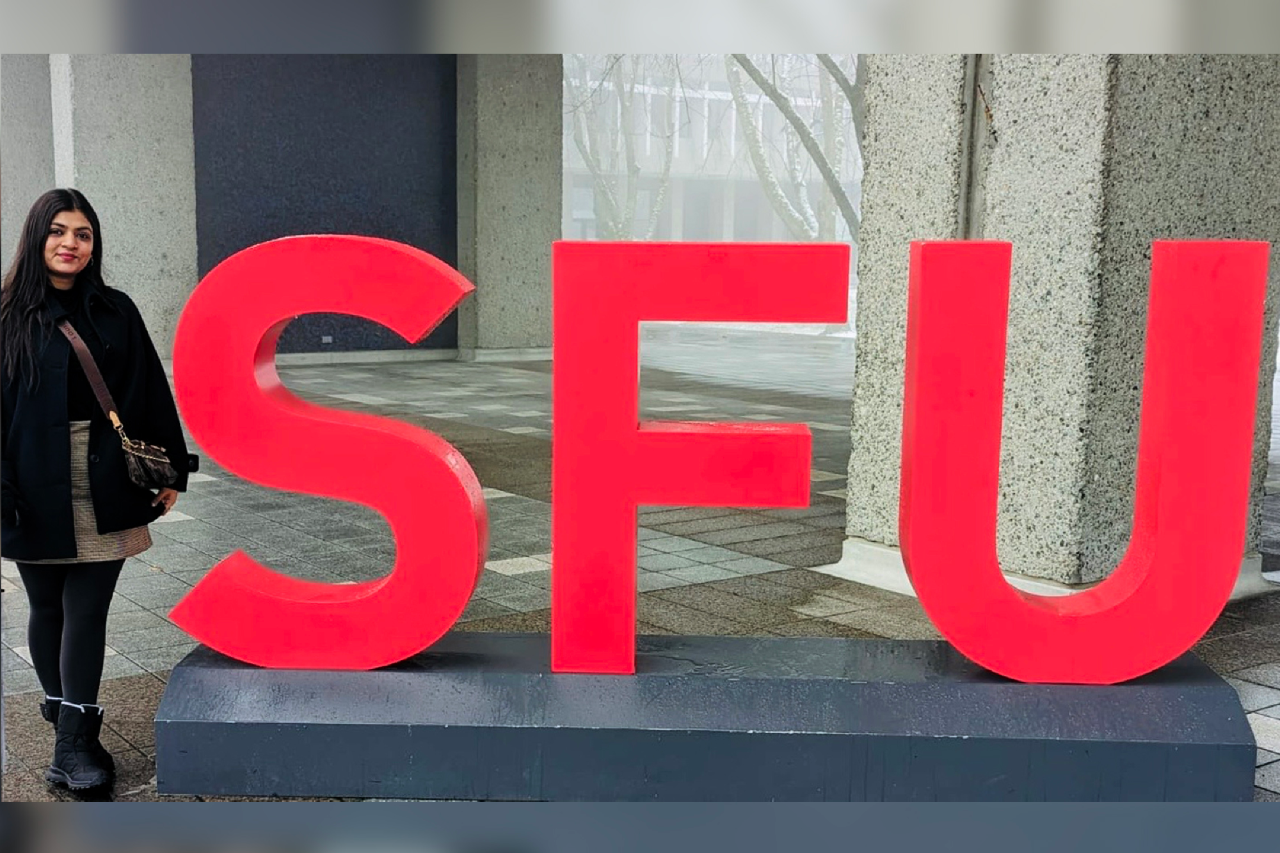
Convocation
Entrepreneurial experience informs GSWS alumnus Nidhi Ghelani's approach to advancing gender equity
By Casey McCarthy
Before pursuing her master of arts in Gender, Sexuality, and Women’s Studies (GSWS) at Simon Fraser University (SFU), Nidhi Ghelani (MA, 2024) was leading her family’s business in Kolkata, India. Now, she is using her university education to help women who are impacted by domestic violence.
Although Ghelani achieved success in an uncommon occupation for young women in her country, business was not her intended career path. When her father fell ill, Ghelani left her job at a non-profit organization to help her family. “My father passed away before the pandemic hit,” Ghelani remembers. “It was an occasion to reflect on my life and what I wanted from it. I always had a dream of becoming a social entrepreneur.”
Before managing her own company, Ghelani completed her BSc and MSc in human development and worked with foundations involved in youth outreach. “I was the first female employee of a non-profit organization promoting social development through sports,” says Ghelani of working in another male-dominated space. “Underprivileged girls in Kolkata are at-risk of leaving school early and marrying young. My project focused on getting girls back in school, so they can improve their economic and social opportunities.”
I came across the master of arts in gender, sexuality, and women’s studies at SFU, and it felt like it was tailor-made for me.
Ghelani aspired to apply the skillset she cultivated as an entrepreneur towards addressing these types of social challenges. “I came across the master of arts in Gender, Sexuality, and Women’s Studies at SFU, and it felt like it was tailor-made for me,” says Ghelani. “It was very specific to the topics I was interested in learning about — there is nothing like it in India.”
When she began her graduate studies in Canada, Ghelani says she learned about herself through the challenges she encountered — both in her coursework and in navigating life in a new country. “Even though I come from a progressive family, my course in feminist theory [GSWS 822] made me aware of some of the roles I automatically assumed as a woman,” says Ghelani. “It is not possible for me to make change in the world without breaking my own stereotypes.”
It is not possible for me to make change in the world without breaking my own stereotypes.
Ghelani’s advice to new graduate students is to get to know your department and become informed about the social, financial, and academic supports that are available at the university. “GSWS has much more to offer students than I could initially see,” says Ghelani. “The professors go beyond to extend any care and guidance possible to their students.”
Outside of the classroom, volunteering at events allowed Ghelani to make connections and contribute to the community. In 2023, she collaborated with her fellow GSWS graduate students to relaunch the International Women’s Day March in Vancouver. During her busy final term as a master's student, Ghelani also found time to volunteer at the GSWS Alumni Celebration. “I had so much fun volunteering at the event,” says Ghelani. "I met many wonderful alumni from my department and learned about their careers in social justice."
The professors go beyond to extend any care and guidance possible to their students.
Ghelani has already launched into her next chapter as a trainee at the Surrey Women's Centre. “I was inspired by Jen Marchbank’s course on gender, violence, and resistance [GSWS 824 - Gender and Social Policy],” says Ghelani. Building on her learning from this course, Ghenani developed a policy brief for her MA field exam where she proposed using education to prevent intimate partner violence.
After Ghelani finishes her training at the Surrey Women's Centre’s drop-in clinic, she hopes to transition to the centre’s domestic violence and intimate partner violence intervention services. “During my course on gender, violence, and resistance, I wrote about these issues from a South Asian perspective,” says Ghelani of how her cultural knowledge informed her learning as a graduate student. “That is when I realized that I can help women, and I hope to do that in my career.”
Learn more about the SFU Gender, Sexuality, and Women’s Studies master of arts program.

